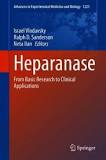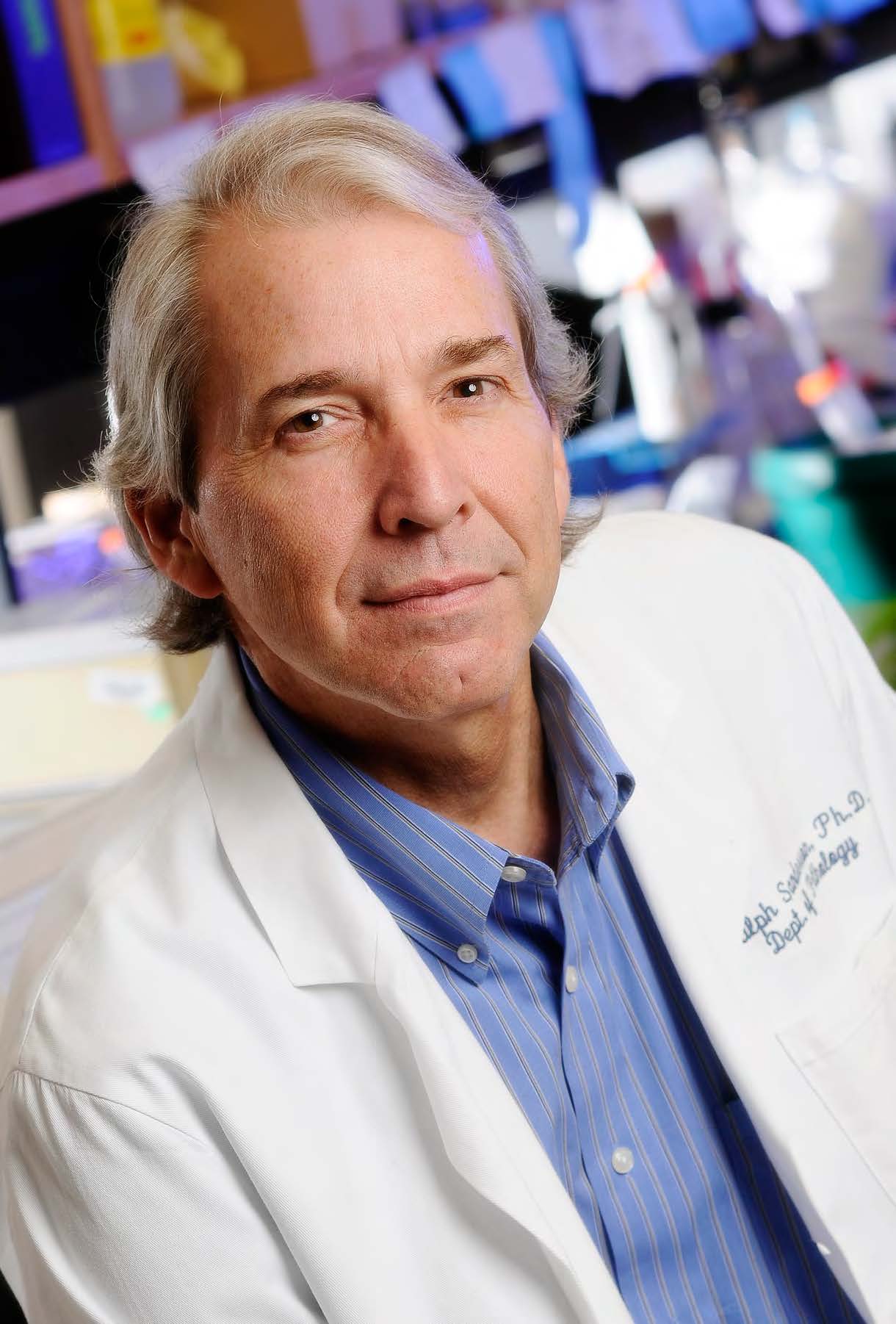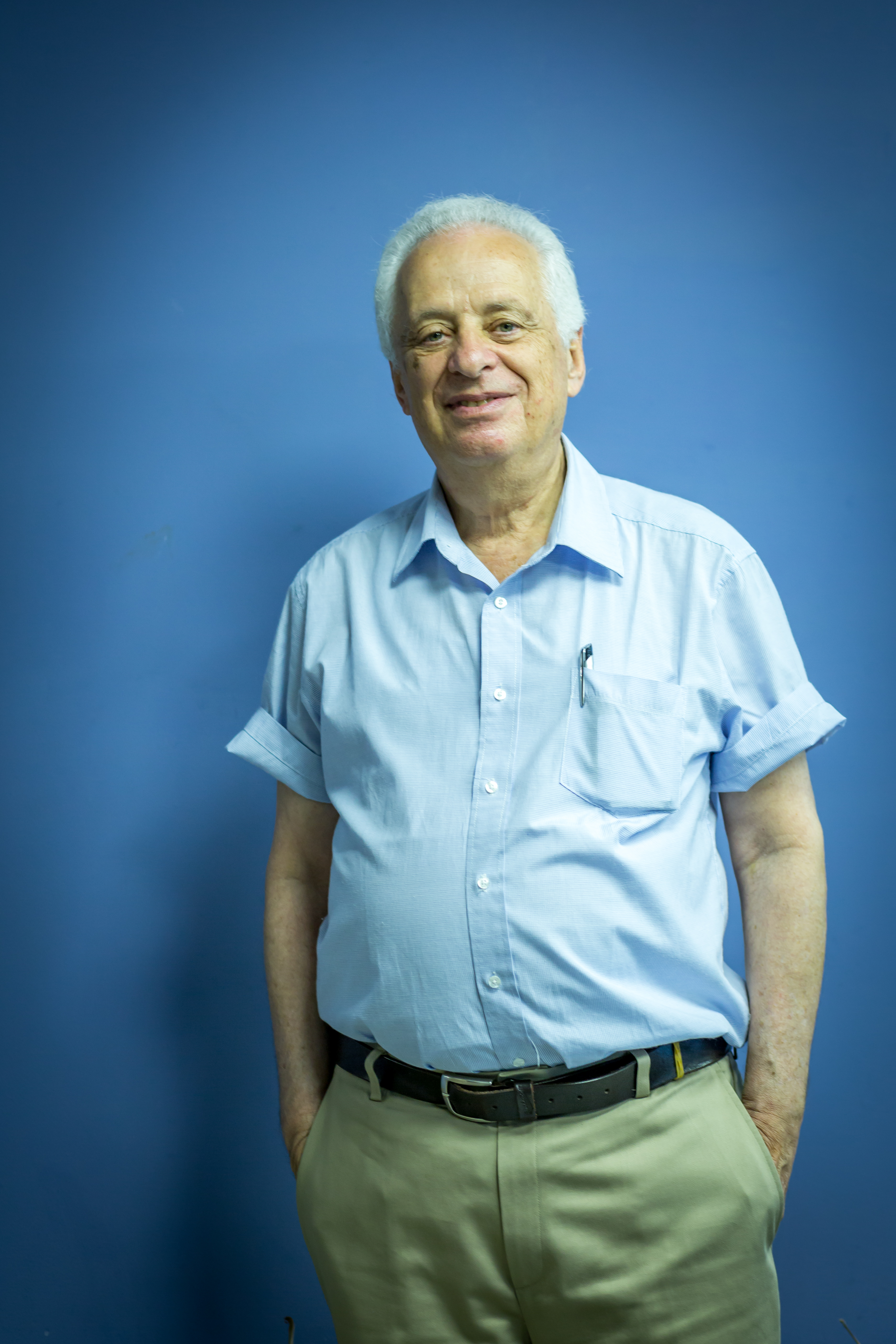Ralph Sanderson. Ph.D., Endowed Professor of Cancer Pathobiology and Division Director, Molecular and Cellular Pathology, recently co-authored and edited the book Heparanase along with Israel Vlodavsky, Ph.D., the world's leading expert on heparanese, an enzyme that cleaves heparan sulfate-a linear polysaccharide found in all animal tissues. Dr. Vlodavsky has collaborated with Sanderson for years in this work, and was the sixth annual Listinsky lecturer in 2019, for a lecture titled, "Heparanese: From Basic Research to Novel Therapeutics for Cancer Inflammation." Sanderson and Vlodavsky's collaboration began two decades ago. Their research now focuses on understanding the mechanisms underlying the ability of heparanase to promote tumor progression.

The book's premise is that heparanase is a master regulator of aggressive cancer phenotypes and crosstalk with the tumor microenvironment. It demonstrates an understanding of heparanase's multifaceted activities in cancer, inflammation, diabetes and other diseases, as well as its related clinical applications to scientists, clinicians, and advanced students in cell biology, tumor biology and onology.
 Ralph D. Sanderson, Ph.D.
Ralph D. Sanderson, Ph.D.  Israel Vlodavsky, Ph.D.
Israel Vlodavsky, Ph.D.
Sanderson is the UAB Endowed Professor of Cancer Pathobiology and Director, Division of Molecular and Cellular Pathology, Department of Pathology, UAB O’Neal Comprehensive Cancer Center. Sanderson earned a B.S. from the University of Alabama, and a Ph.D. at the University of Alabama at Birmingham. His research focuses on determining how tumor-host cell interactions mediated by heparan sulfate and the enzyme heparanase regulate the tumor microenvironment and promote tumor progression, and to use that knowledge to design new cancer therapies.
Vlodavsky is a Professor of Cancer and Vascular Biology at Technion- Israel Institute of Technology’s Rappaport Faculty of Medicine and Technion Integrated Cancer Center (TICC). Vlodavsky’s discovery of the extracellular matrix as a reservoir for bioactive molecules provided the basis for the current appreciation of the tumor microenvironment and its significance in cancer progression and treatment. A pioneering achievement of Vlodavsky is the cloning and characterization of heparanase, the predominant enzyme that degrades heparan sulfate and fulfills important roles in tissue remodeling, cancer metastasis, angiogenesis, inflammation, diabetes, and kidney dysfunction. Through the combination of basic and translational research, Vlodavsky is the leading scientist in this area of research, offering basic insights and new treatment strategies for various cancers and other diseases. He earned his bachelor’s and Master’s degrees from The Hebrew University of Jerusalem, and Ph.D. from the Weizmann Institute, Rehovot, Israel.
The book is published by and available from Springer.